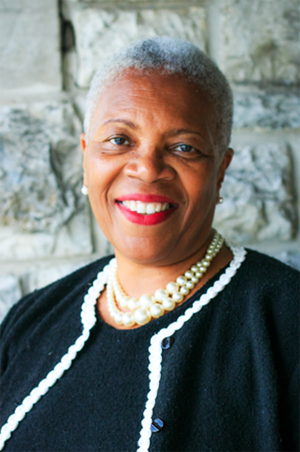
By Rev. Donald L. Perryman, Ph.D.
The Truth Contributor
I don’t believe the accident of birth makes people sisters or brothers. It makes them siblings…. Sisterhood and brotherhood is a condition people have to work at.
– Maya Angelou
Last week’s primary race for Lucas County Commissioner between Anita Lopez and Paula Hicks-Hudson showcased several significant insights, serving as a microcosm of broader political trends.
With control over nearly $1 billion in annual spending at stake, the Lopez/Hicks-Hudson showdown highlighted the suburban ascent from the sidelines to the main event in emerging political battles.
Despite Hicks-Hudson’s strong support in the urban core, Lopez’s monopolizing win in the suburbs Maumee, Monclova, Oregon and Sylvania not only sealed the deal but also underscored a crucial lesson: winning elections necessitates strong support from suburban communities.
The race was extremely close after early and absentee votes were counted; however, Lopez clinched the victory by winning the election day vote tally by 2200 votes more than Hicks-Hudson.
Yet, low voter participation is a challenge, particularly in urban areas where it disproportionately affects African American candidates. Even with massive, door-pounding campaigns and lit drops in central city wards, the efforts seem only to yield a marginal difference in primaries, lessening their impact and the opportunity to place an African American into office.
With suburban voters increasingly acting as kingmakers, this election demonstrates the need to cultivate candidates capable of appealing beyond traditional central city wards if African American candidates are to taste electoral success in contested races.
It also appears that Lopez may have had a much larger campaign war chest and a sizeable advantage in signs, volunteers and superior organization on the ground and at the polls on election day, including Tina Butts’ effective organizing machinery.
Therefore, a valiant Hicks-Hudson showed tremendous resilience given Lopez’s domination of the suburbs, which experienced a much higher turnout than Hicks-Hudson’s underperforming central city base. George Hilliard, though, should receive a standing ovation for garnering a higher turnout and support in Ward 6, which supported Hickes-Hudson by an 80 to 20 percent margin.

Paula Hicks-Hudson: Future Directions:
With another disappointing electoral loss, Hicks-Hudson faces a pivotal moment in her political journey, prompting a reassessment of her strategy and engagement approaches. Despite her extensive experience and significant roles throughout her career, she now stands at a crossroads, contemplating where her brilliant legal mind, expertise and governance experience can be most effectively utilized.
Hicks-Hudson may be out as party chair of the Lucas County Democrats. Schuyler Beckwith is spearheading a shift in direction, as evident by her recent efforts to assemble a new slate.
Acknowledging the need for change, she has taken proactive steps to gather support and solidify her position. Despite the sensitivity surrounding Paula’s potential candidacy, Beckwith has moved forward with her own plans, reaching out to garner endorsements from prominent groups such as the Building Trades and IBEW. With key endorsements and a cohesive slate, Schuyler’s candidacy appears formidable, signaling a potential shift in leadership dynamics within the Party.
Currently holding a secure seat in the Ohio Senate, Hicks-Hudson’s options for her next steps are varied. While she may continue in public service or contribute to policy development, leveraging her leadership in advisory roles is another potential avenue. These possibilities signify a new chapter in her journey that builds upon her past accomplishments while addressing the challenges highlighted by her recent dismal electoral experiences.
Analyzing Hicks-Hudson’s political trajectory further reveals areas for potential growth and development. While she has considerable experience and support within specific “voter niches” or confined voter areas, she has faced challenges in building a robust political organization and donor base. This aspect of her candidacy has hindered her ability to effectively navigate broader competitive electoral races.
Moreover, Hicks-Hudson’s decision-making regarding potential career opportunities has also been scrutinized. Despite opportunities to groom for future roles such as Lucas County Clerk of Courts or Lucas Metropolitan Housing, she has preferred positions that offer greater visibility and influence. However, this inclination may limit her options, particularly in administrative roles where her expertise could be valuable.
Looking ahead, Hicks-Hudson’s future endeavors must align with her skills and aspirations. If rumors of Vallie Bowman-English’s planned retirement are trustworthy, a possible spot leading Toledo Municipal Court could rescue Hicks-Hudson from the arduous and unforgiving back-and-forth travel to Columbus to serve in the Ohio Legislature. With her policy expertise and superb credentials, I would not rule out a local appointment as an administrator or in a policy role.
Ultimately, Hicks-Hudson’s journey represents challenges and opportunities, necessitating strategic decision-making and adaptation as she charts her course. With a clear understanding of her strengths and ambitions, she will successfully navigate the complexities of the local political landscape and carve out a path that reflects her values and aspirations.
Democratic Party Strategy:
Nevertheless, the public has now spoken. Campaigns were run, a primary was held and is over, and primaries are a fundamental part of our Democratic system. However, we need to shift our focus to the general election, which holds far greater importance.
Neither Paula nor Anita should be “all up in their feelings.” Instead, they should let bygones be bygones.
In November, Marcy Kaptur and Sherrod Brown are involved in the elections of their political lives. According to respected polls, Marcy has, at best, a 50-50 chance of defeating Derek Merrin in the volatile race for the U.S. Congress’s 9th District.
So, instead of getting caught up in emotions, the community needs to move forward. The upcoming challenges require us to set aside personal sentiments and focus on the task at hand. As we face the impending storm, we must take proactive steps to fortify our defenses and unite.
It’s time to prepare for what lies ahead and build the necessary barriers to overcome division and achieve our collective goals.
Contact Rev. Donald Perryman, PhD, at drdlperryman@centerofhopebaptist.org
